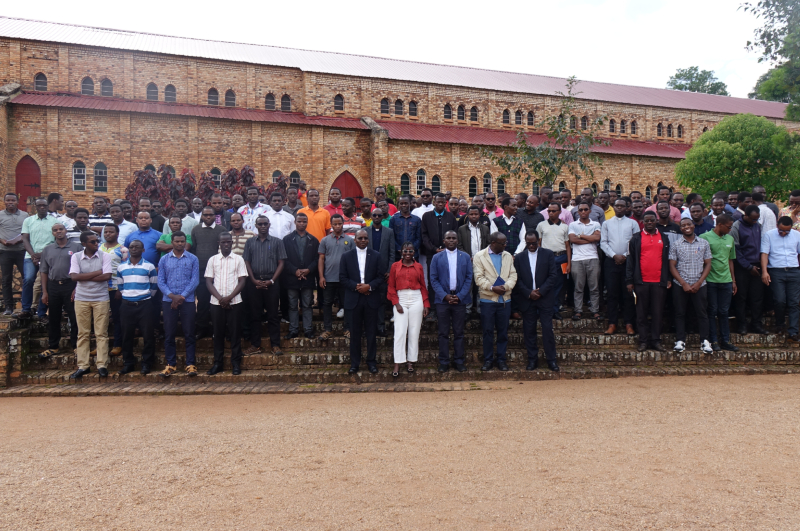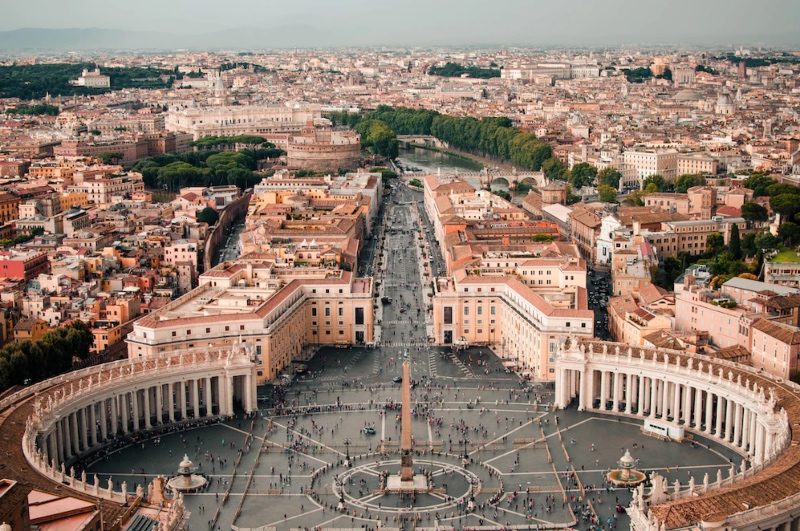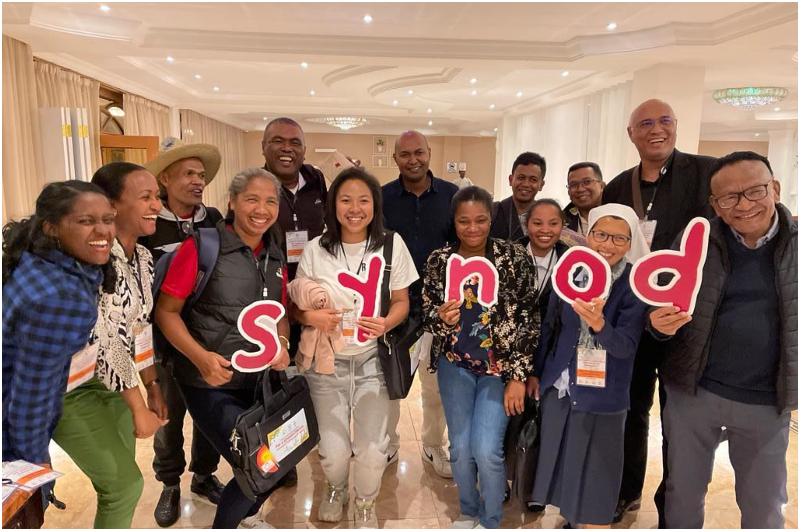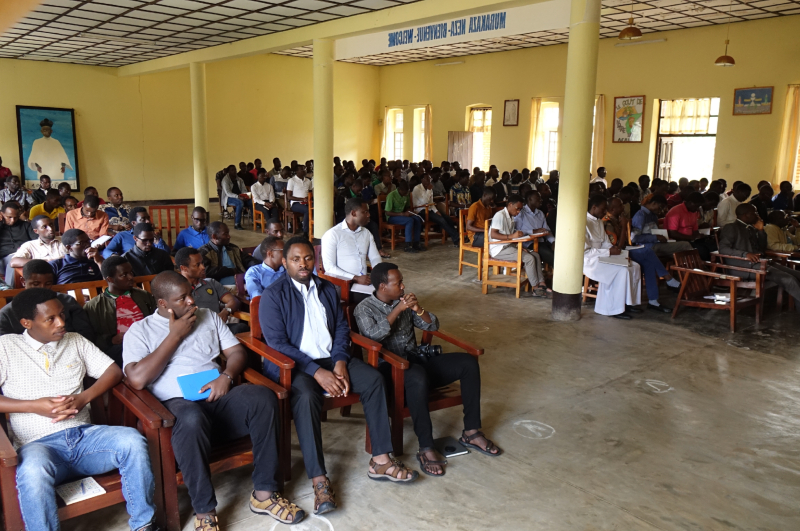

The African Synodality Initiative (ASI) held a transformative formation workshop on synodality with seminarians and deacons at the Nyakibanda Major Seminary, from November 30 to December 1, 2023, in Butare, Rwanda.
The theme of the 2-day event was Synodal leadership, the spirituality of journeying together, and how to be or lead synodal pastoral communities. 196 students of theology ranging from first to fourth years attended.
The Working Document ("Instrumentum Laboris") for the synodal assembly emphasises formation in the culture and spirituality of synodality “as a priority at all levels of ecclesial life” (46, 58) and “the indispensable means to make the synodal way of proceeding a pastoral model for the Church’s life and action” (59). The Synod on Synodality recognises that bishops and priests face disproportionate burdens of responsibility for the church's mission. It also identifies clericalism as opposed to Jesus' model of ministerial service, leading to "authoritarian attitudes" and vocations stifled by privilege and power that refuse accountability. “This deformation of the priesthood must be countered from the early stages of formation” (Final Synthesis, 11, c).
This workshop was an enriching and eye-opening experience for the seminarians and deacons as young people preparing for ordained ministry. The Facilitator of the first day, Rev. Dr. Fr. Marcel Uwineza, SJ, offered insights on the background of synodality, offering practical biblical examples from the Acts of the Apostles. This was very much appreciated by the participants, as it shed light on, why synodality?
Fr. Marcel also introduced the participants to the methodology of spiritual conversation, which was very new to all the participants. He delved into the significance of listening, dialogue, and conversation in a synodal church, inviting the Holy Spirit to be the protagonist. He emphasised the need to listen to those who often remain silent and create a space where everyone has something to offer. This methodology was termed to be "really synodal” by one of the participants. “I have taken some notes for the seminarians, and I am blessed to hear from you the method and steps of spiritual conversation. This will help me put into practice what we have learned, most practically the principle of inclusion: no one should lack or miss at our table,” a second-year student said.
The principles of synodal leadership were further explored by Fr. Emmanuel Nsengiyumva, who offered guidance on cultivating and leading pastoral communities, with an emphasis on collaborative decision-making, active listening, shared responsibility, inclusivity, and active participation. In a reflection on how the participants envision applying the teachings, a fourth-year student wrote, “First and foremost, after this workshop, we shall try our best to help others, in a special way, our faithful in the church communities. Listening to them is our priority. As the leaders we are about to become in a few days, we shall humble ourselves so that everyone will feel free. Secondly, we have to accompany each and every faithful who needs our help, especially here in Rwanda, where assistance is so much needed by our Christians. Lastly, as many people are still being wounded, we shall continue approaching the faithful without discrimination.”
In an open dialogue, participants expressed concerns about synodality, including fears about how to accompany individuals with different identities within the church and the perceived risk of synodality conflicting with church doctrine. Fr. Marcel responded by affirming the importance of acknowledging and addressing these fears, referencing the final synthesis report of the 2023 synod of bishops that emphasised listening and accompanying those who feel marginalised. “In different ways, people who feel marginalised or excluded from the church due to their marital situation, identity, or sexuality also ask to be listened to and accompanied, and that their dignity be defended. In the Assembly, there was a profound sense of love, mercy, and compassion for people who are or feel hurt or neglected by the church, who want a place to return "home" and where they feel safe, to be listened to and respected without fear of feeling judged. Listening is a prerequisite for walking together in search of God's will. The Assembly reaffirms that Christians cannot lack respect for the dignity of any person." (Final Synthesis, 16, h).
Reflections on the workshop
A first-year student of theology wrote, “In this workshop, we have been introduced to the idea that this process of synodality has its roots in the holy scriptures and even in the innermost mission of the church."
A second-year student of theology said, “We have seen the example of Jesus, who risks entering into contact with people with a lower level of comprehension and those put aside for their lack. Taking this as our model, the church should go and encounter those in need of explanation and healing (physical and spiritual)."
A third-year student wrote, "The workshop has been of great impact through showing the foundations of synodality within the holy scriptures and that the leadership of consultation and creating the room for the charisms and gifts of the members of the church are aspects being at its heart. It has impacted my level of understanding people, taking to heart that we are not set apart to be set above, being united as sons of God”.
In conclusion the workshop was lauded by the participants, who requested the continuation of such formation by ASI. There was also a recommendation to extend these formations to Basic Ecclesial Communities (BECs), highlighting the desire to adopt the methodology taught during future seminary events to encourage listening and dialogue among the future pastoral leaders.
Related Articles
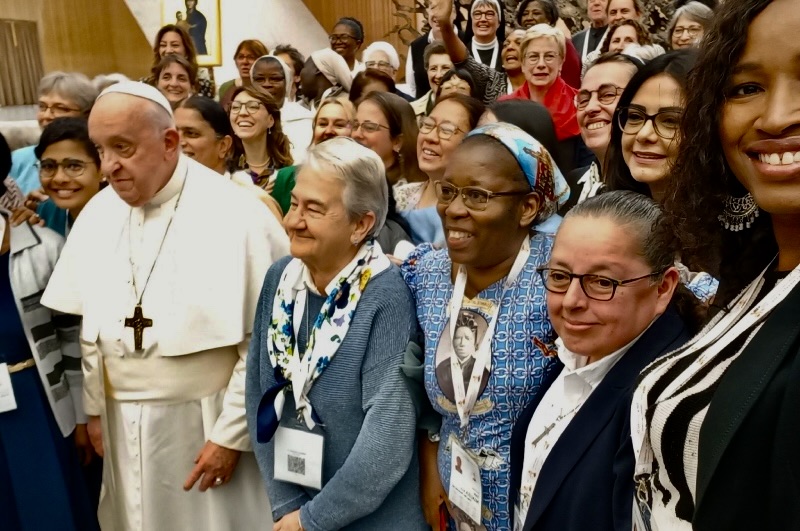
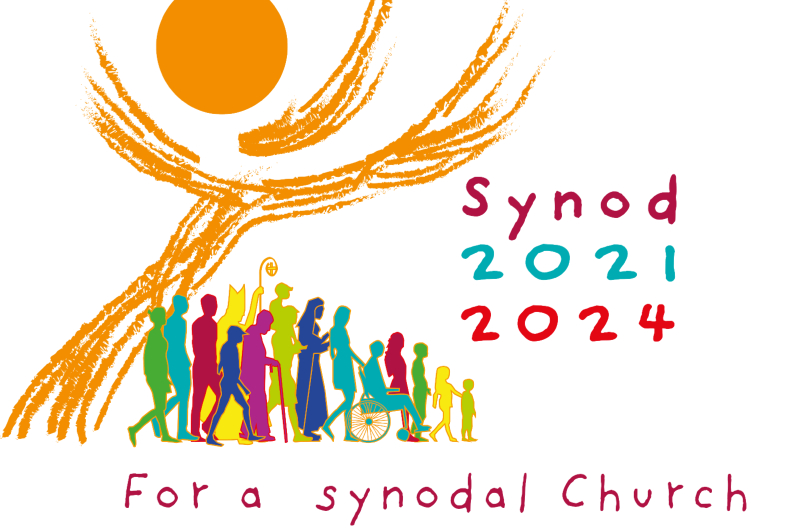
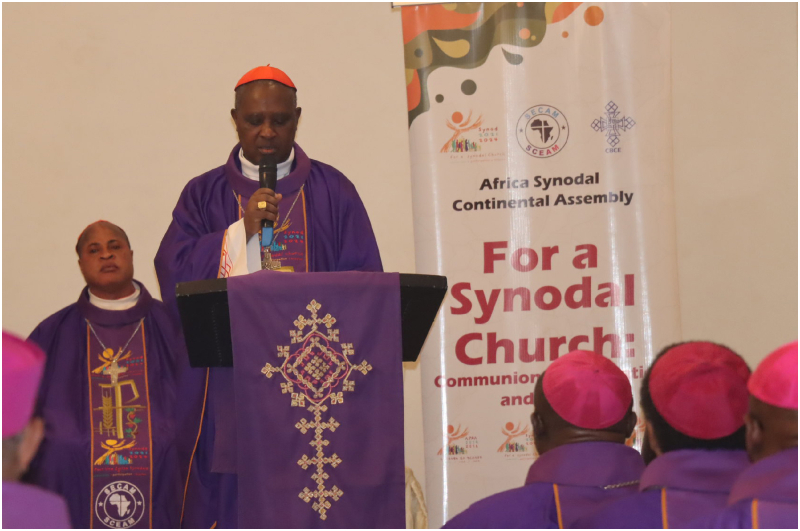
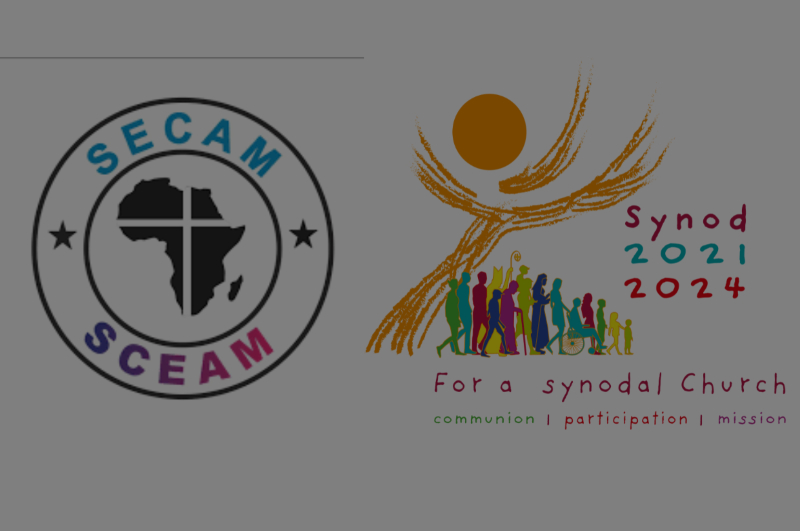
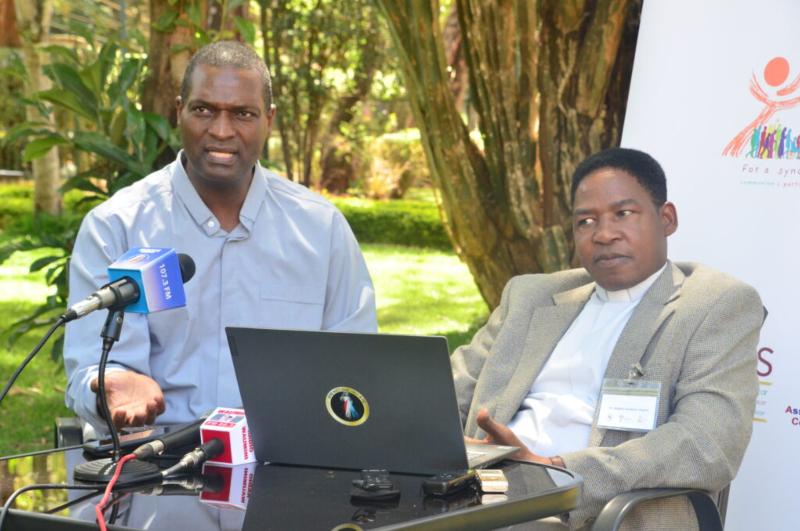
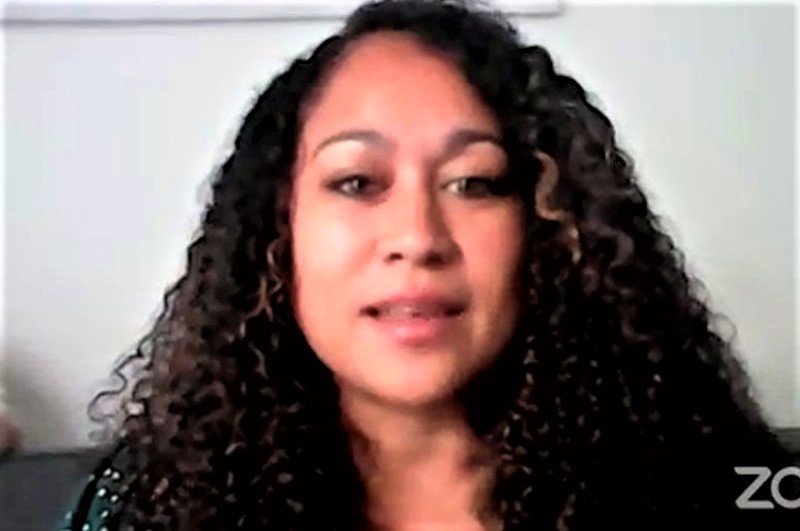

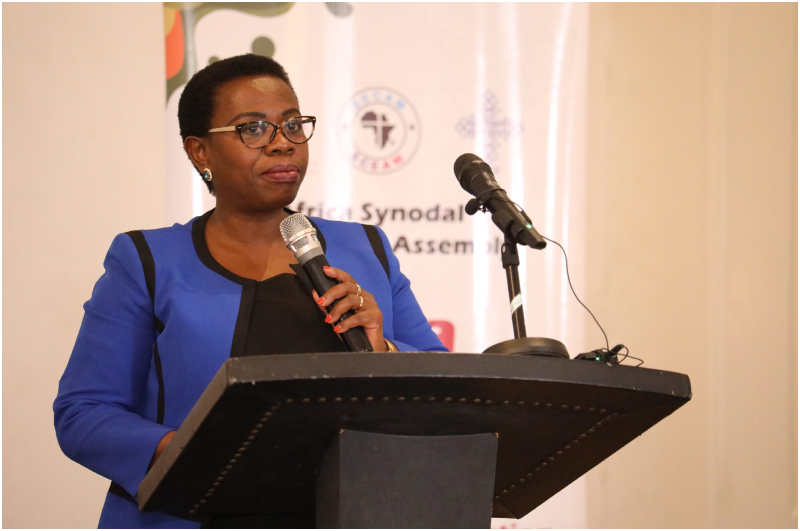
Select Payment Method
Pay by bank transfer
If you wish to make a donation by direct bank transfer please contact Fr Paul Hamill SJ treasurer@jesuits.africa. Fr Paul will get in touch with you about the best method of transfer for you and share account details with you. Donations can be one-off gifts or of any frequency; for example, you might wish to become a regular monthly donor of small amounts; that sort of reliable income can allow for very welcome forward planning in the development of the Society’s works in Africa and Madagascar.
Often it is easier to send a donation to an office within your own country and Fr Paul can advise on how that might be done. In some countries this kind of giving can also be recognised for tax relief and the necessary receipts will be issued.


